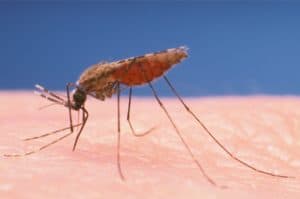
Drug resistant malaria spreads in South East Asia
pharmafile | July 23, 2019 | News story | Manufacturing and Production | South East Asia, global health, infectious diseases, malaria, parasites
Drug resistant malaria parasites are spreading rapidly in South East Asia, according to researchers from Thailand and the United Kingdom.
The drug resistant parasites have spread from Cambodia into Thailand, Laos and Vietnam, according to a study published in the journal The Lancet Infectious Diseases.
Between 2008 and 2013, a multidrug resistant strain of malaria spread across Cambodia causing high rates of treatment failure with the frontline combination therapy dihydroartemisinin-piperaquine.
By 2016-2017 the researchers found the parasite had become highly prevalent in both north eastern Thailand and Vietnam. The parasite was also found in Laos. Before 2009 the drug resistant strain of malaria was only found in western Cambodia.
The emergence of drug resitant strains of malaria puts global malaria targets at risk. However, while the drug resistant parasite had become prevalent in South East Asia, its resistance to first line therapies does not mean it’s entirely untreatable.
“With the spread and intensification of resistance, our findings highlight the urgent need to adopt alternative first-line treatments”, Professor Tran Tinh Hien, from the Oxford University Clinical Research Unit, in Vietnam, said to the BBC.
The findings come as incidence of both malaria and malaria mortality has increased since 2015. While significant progress has been made, drug resistant malaria parasites threaten this progress. Researchers are concerned the drug resistant parasite could spread to Africa.
“This highly successful resistant parasite strain is capable of invading new territories and acquiring new genetic properties, raising the terrifying prospect that it could spread to Africa, where most malaria cases occur, as resistance to chloroquine did in the 1980s, contributing to millions of deaths,” Professor Olivo Miotto, from the Wellcome Sanger Institute and University of Oxford, said.
Louis Goss
Related Content

First malaria medicine for infants under 4.5kg receives approval
Coartem (artemether-lumefantrine) Baby, or Riamet, has been approved by Swissmedic as the first malaria medicine …

FDA approves Roche’s test for malaria in blood donors
Roche has announced that the US Food and Drug Administration (FDA) has approved its cobas …

WHO recommends new vaccine for prevention of malaria in children
The World Health Organization (WHO) has announced that it has recommended a new vaccine, R21/Matrix-M, …






